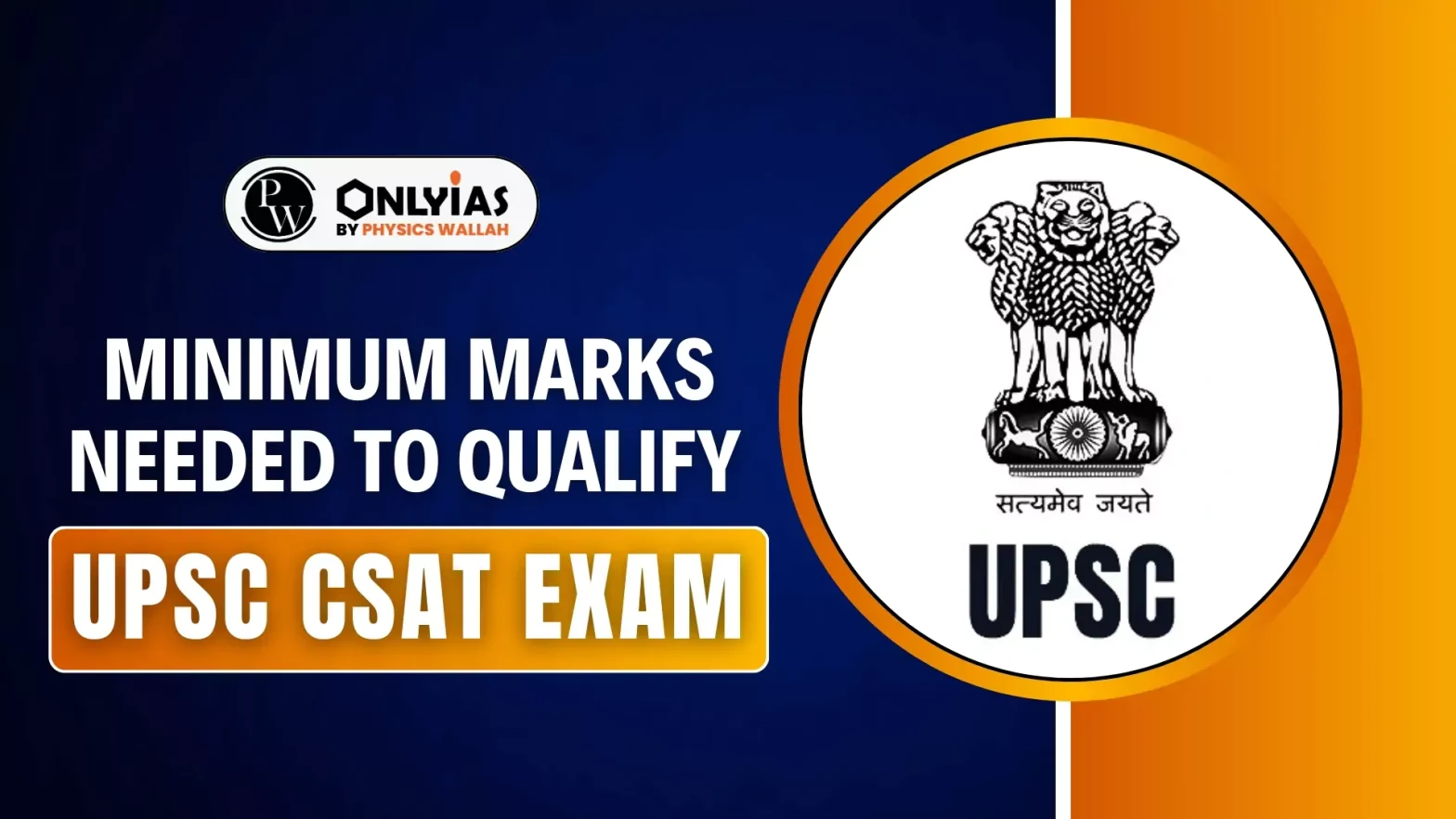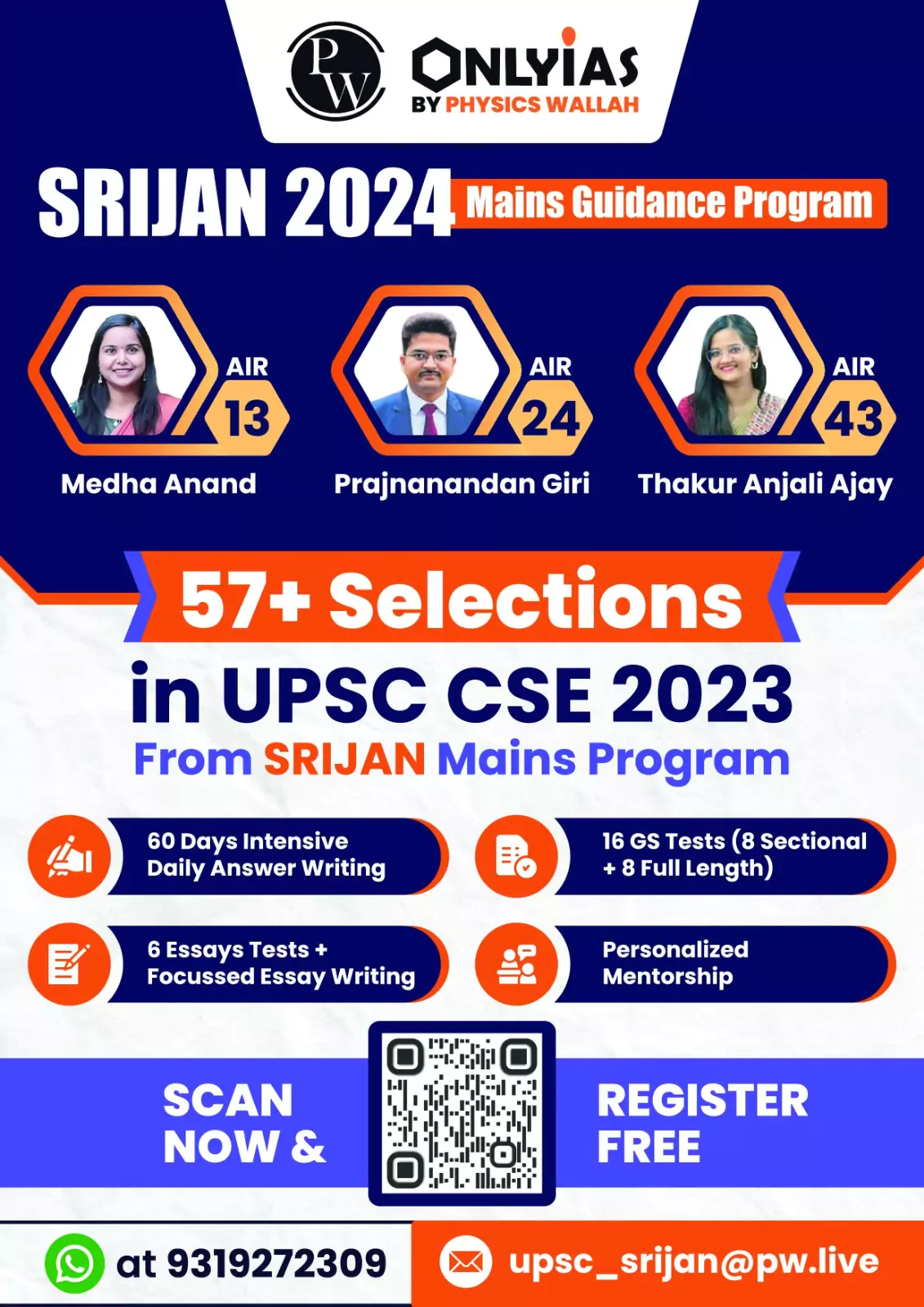Marks Needed to Qualify UPSC CSAT exam 2025 is set at 33% marks out of 200 marks. Learn more about the minimum marks needed and marking scheme of CSAT.

Marks Needed to Qualify UPSC CSAT: The Civil Services Aptitude Test (CSAT) is an important component of the UPSC (Union Public Service Commission) examination. Understanding the qualifying criteria and the minimum marks required to clear the CSAT is crucial. Keep on reading to know more about the marks needed to qualify for UPSC CSAT 2025 for each category. While it is a qualifying paper, candidates must secure the minimum required marks to move forward in the selection process. The CSAT paper carries 200 marks, and candidates need to score at least 33% (66 marks) to qualify. It is crucial to note that CSAT scores are not counted for merit ranking in the Prelims but failing to qualify will result in disqualification.
The UPSC CSAT is designed to assess candidates’ comprehension, logical reasoning, decision-making, problem-solving, and general mental ability. It is crucial in determining candidates’ eligibility for the next stage of the Civil Services Examination. The CSAT evaluates a candidate’s aptitude in various areas, including comprehension, logical reasoning, analytical ability, decision-making, and general mental ability. This paper is a qualifying paper, meaning candidates must achieve a minimum score to pass. The qualifying marks are the same for all categories, set at 33% of the total marks.
|
CSAT Qualifying Marks |
|
| Number of Questions | 80 |
| Negative Marking | Yes, 0.83 Marks |
| Total Marks | 200 |
| CSAT Qualifying Marks | 66 Marks (33%) |
The CSAT is of a total of 200 marks. qualifying marks are set at 33%, it is important to note that the marks obtained in the CSAT paper are not added to the final merit list. The CSAT paper serves as a screening test, and the marks obtained in this paper do not contribute to the calculation of the overall merit rank. However, qualifying the CSAT is necessary to move on to the next stage of the examination. Here’s a detailed breakdown of the CSAT paper structure:
| Total Number of Questions | 80 MCQ-types |
| Marks for Correct Answer | 2.5 |
| Total Marks | 200 |
| Time Allotment | 2 hours |
| Negative Marking | 1/3rd of the marks assigned |
The CSAT paper includes a negative marking system to discourage guesswork. Below is an overview of how it works:
If a question is worth 2 marks, the penalty for an incorrect answer will be 2 ÷ 3 = 0.67 marks.
Thus, 0.67 marks will be deducted for every wrong answer, reducing the candidate’s total score.
The UPSC CSAT 2025 cutoff marks remain the same across categories. However, aspirants should aim for a higher score to ensure they meet the qualifying criteria with ease. Understanding the exam pattern, practicing previous year’s papers, and focusing on problem-solving skills can significantly improve a candidate’s performance.
The UPSC has set specific qualifying marks for the CSAT paper. To qualify, candidates must secure a minimum of 33% marks in the CSAT paper. This means that out of the total marks assigned to the CSAT paper, candidates must score at least 66 marks to clear the examination.
The UPSC CSAT paper has a uniform qualifying criterion for all categories. Candidates must secure at least 33% marks (66 out of 200) to qualify. The qualifying marks are the same across all categories:
The minimum qualifying mark for the General category candidates in CSAT is 33%. This means candidates need to secure at least 33% of the total marks allocated to CSAT to qualify for the examination.
For candidates belonging to the OBC category, the minimum qualifying marks are also set at 33%. OBC candidates need to obtain a minimum of 33% marks in CSAT to qualify the examination.
The minimum qualifying marks for candidates belonging to the SC and ST categories are also 33%. SC and ST candidates need to secure a minimum of 33% marks in CSAT to qualify the examination.
Candidates belonging to the EWS category also need to obtain a minimum of 33% marks to qualify CSAT. The qualifying marks for EWS candidates are the same as the General category.
For candidates with benchmark disabilities, the qualifying marks for CSAT are also set at 33%. PwBD candidates need to secure a minimum of 33% marks in CSAT to qualify the examination.
It is important to note that these qualifying marks are applicable to the CSAT paper only. The marks obtained in CSAT do not contribute to the final merit list, which is determined based on the performance in the mains examination and the interview stage. Candidates must aim to not only meet the minimum qualifying marks but also strive to perform well to improve their overall scores and enhance their chances of securing a higher rank in the final merit list.
It is advisable for candidates to refer to the official UPSC notifications and guidelines for the most accurate and up-to-date information regarding the qualifying marks for CSAT, as they may be subject to change.

To ensure a comfortable qualification in the CSAT, candidates should adopt effective scoring strategies. Some key points to consider are:
Time Management: Allocate sufficient time to each section of the CSAT paper to attempt all the questions within the given timeframe. Managing time effectively will help cover the entire syllabus and increase the chances of scoring the required qualifying marks.
Focus on Strengths: Identify your strengths among the different sections of the CSAT paper. Allocate more time and effort to topics and question types that you are confident about. This will help maximize your scores in those areas.
Practice Mock Tests: Regularly practice mock tests designed specifically for CSAT. Mock tests simulate the actual examination environment and help familiarize you with the question format and difficulty level. It also assists in improving time management skills and enhancing your performance.
Clear Understanding of Concepts: Develop a clear understanding of the concepts and principles covered in the CSAT syllabus. Strengthen your aptitude, reasoning, and comprehension skills through consistent practice and revision.
Sign up for the PWOnlyIAS Online Course by Physics Wallah and start your journey to IAS success today!
| Related Articles | |
| UPSC Notification 2025 | UPSC Exam Pattern 2025 |
| UPSC 2025 Exam Date | UPSC Free Study Material 2025 |
| UPSC Prelims Syllabus 2025 | Recommended UPSC Books 2025 For Prelims & Mains |
The minimum qualifying marks for the UPSC CSAT Exam are 33%, meaning candidates need to secure at least 66 marks out of 200 to qualify.
Yes, the qualifying mark of 33% applies uniformly across all categories, including General, OBC, SC/ST, EWS, and PwBD.
Yes, there is a negative marking in CSAT. 1/3rd of the marks (0.83 marks) assigned to a question are deducted for each incorrect answer.
No, CSAT is only qualifying in nature, and its marks are not included in the final merit list. Candidates must still pass CSAT to proceed to the Mains.
The CSAT paper contains 80 multiple-choice questions (MCQs) worth 200 marks in total, with a time limit of 2 hours.

<div class="new-fform">
</div>